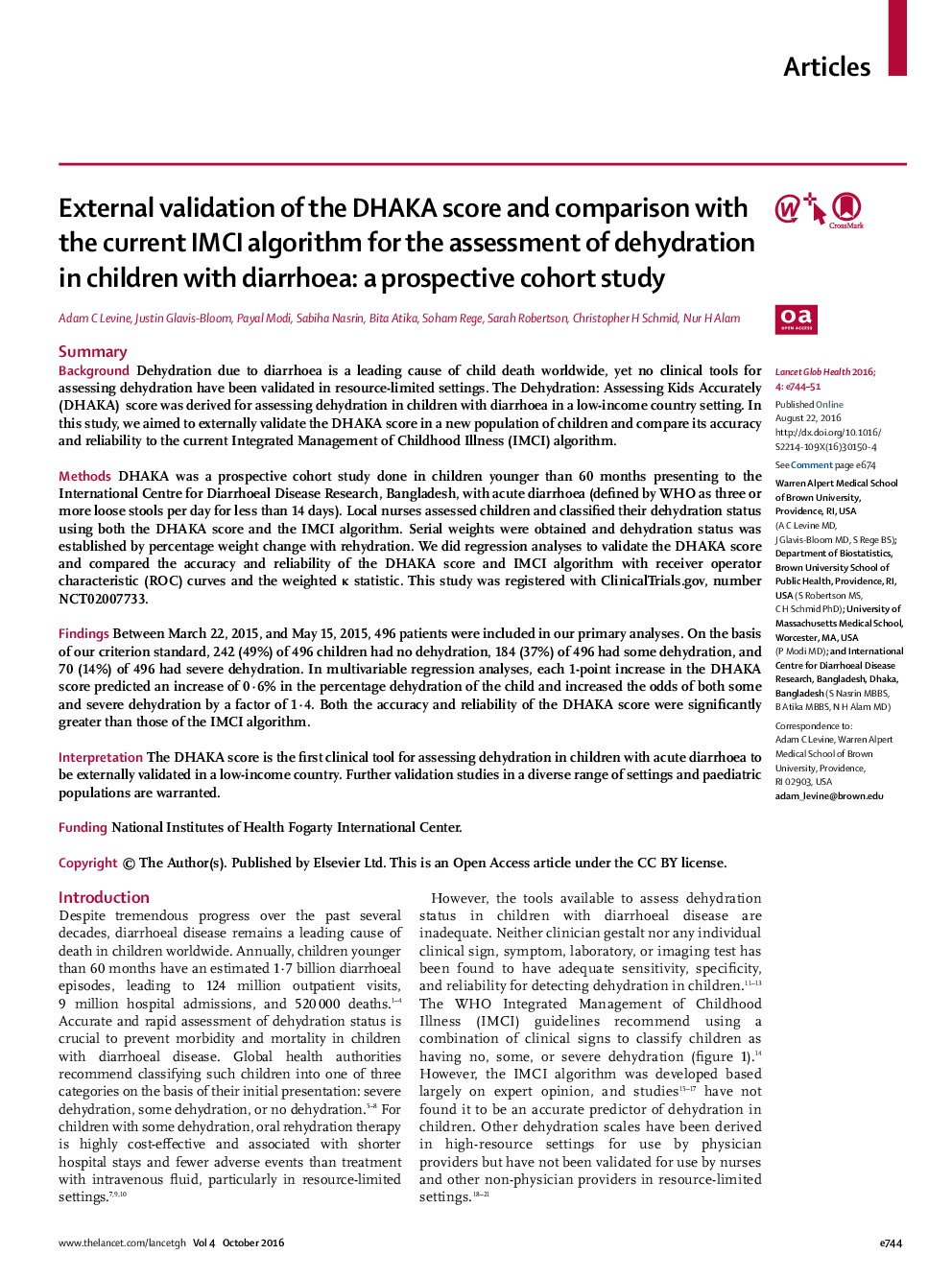| کد مقاله | کد نشریه | سال انتشار | مقاله انگلیسی | نسخه تمام متن |
|---|---|---|---|---|
| 3408694 | 1408151 | 2016 | 8 صفحه PDF | دانلود رایگان |
SummaryBackgroundDehydration due to diarrhoea is a leading cause of child death worldwide, yet no clinical tools for assessing dehydration have been validated in resource-limited settings. The Dehydration: Assessing Kids Accurately (DHAKA) score was derived for assessing dehydration in children with diarrhoea in a low-income country setting. In this study, we aimed to externally validate the DHAKA score in a new population of children and compare its accuracy and reliability to the current Integrated Management of Childhood Illness (IMCI) algorithm.MethodsDHAKA was a prospective cohort study done in children younger than 60 months presenting to the International Centre for Diarrhoeal Disease Research, Bangladesh, with acute diarrhoea (defined by WHO as three or more loose stools per day for less than 14 days). Local nurses assessed children and classified their dehydration status using both the DHAKA score and the IMCI algorithm. Serial weights were obtained and dehydration status was established by percentage weight change with rehydration. We did regression analyses to validate the DHAKA score and compared the accuracy and reliability of the DHAKA score and IMCI algorithm with receiver operator characteristic (ROC) curves and the weighted κ statistic. This study was registered with ClinicalTrials.gov, number NCT02007733.FindingsBetween March 22, 2015, and May 15, 2015, 496 patients were included in our primary analyses. On the basis of our criterion standard, 242 (49%) of 496 children had no dehydration, 184 (37%) of 496 had some dehydration, and 70 (14%) of 496 had severe dehydration. In multivariable regression analyses, each 1-point increase in the DHAKA score predicted an increase of 0·6% in the percentage dehydration of the child and increased the odds of both some and severe dehydration by a factor of 1·4. Both the accuracy and reliability of the DHAKA score were significantly greater than those of the IMCI algorithm.InterpretationThe DHAKA score is the first clinical tool for assessing dehydration in children with acute diarrhoea to be externally validated in a low-income country. Further validation studies in a diverse range of settings and paediatric populations are warranted.FundingNational Institutes of Health Fogarty International Center.
Journal: The Lancet Global Health - Volume 4, Issue 10, October 2016, Pages e744–e751
